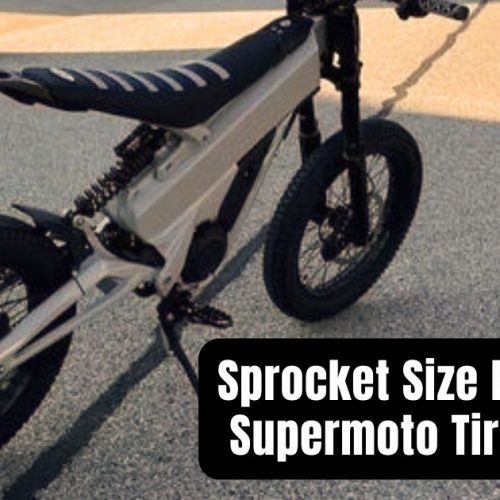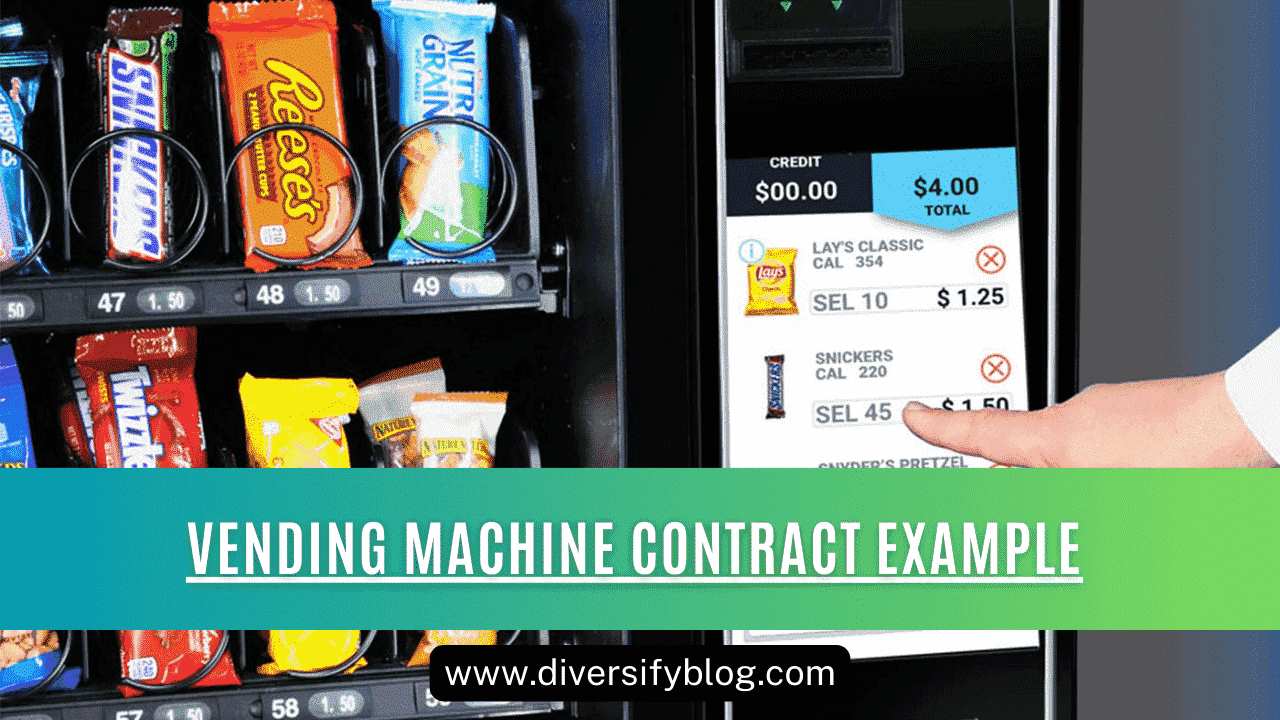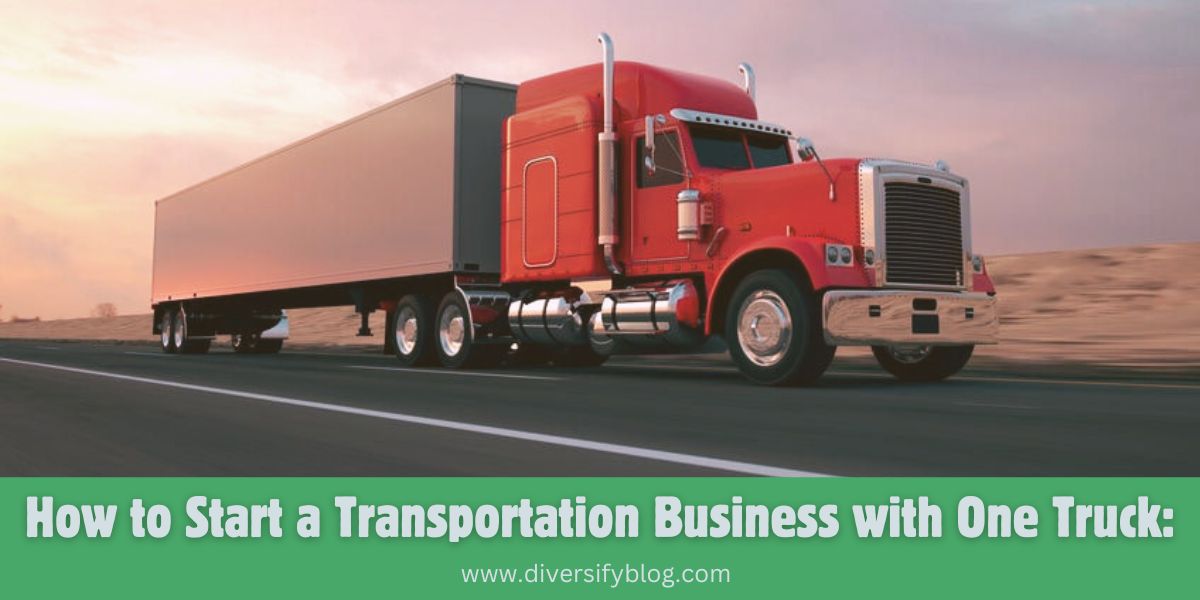Introduction:
Vending machines have become an integral part of our daily lives, providing convenient access to snacks, drinks, and even essential items like hygiene products. Whether you’re a business owner looking to add an extra stream of income or someone interested in starting a vending machine business, understanding the costs involved is crucial. This blog post will guide you through the various aspects of renting and buying vending machines, helping you make an informed decision.
Table of Contents
We’ll cover the different types of vending machines available, the costs associated with both renting and buying, and the pros and cons of each option. By the end of this article, you’ll have a clear understanding of what to expect financially and how to choose the best option for your specific needs. Additionally, we’ll discuss the benefits vending machines can bring to businesses, making them a valuable investment for many entrepreneurs.
So, whether you’re new to the vending machine industry or looking to expand your existing operations, this guide will provide you with the information you need to navigate the costs and make a smart investment. Let’s dive in and explore the world of vending machines!
2- Understanding Vending Machines:
Before diving into the costs and options for renting or buying a vending machine, it’s important to understand the different types of vending machines available. This knowledge will help you choose the right machine for your needs and budget.
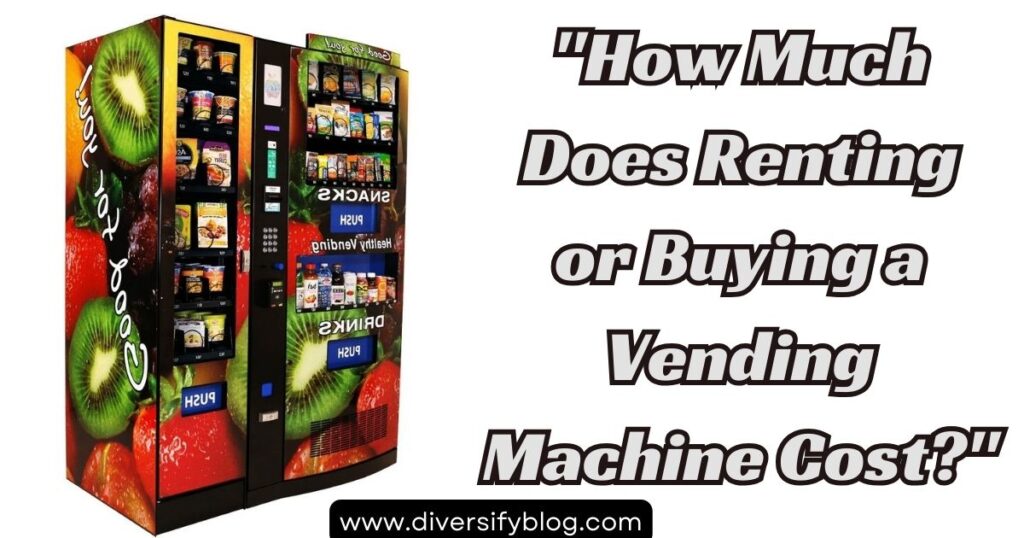
Types of Vending Machines
- Snack Vending Machines:
- These are the most common type and are designed to dispense a variety of snacks like chips, candy, and granola bars. They are typically found in office buildings, schools, and public places.
- Drink Vending Machines:
- These machines dispense beverages, including sodas, water, juices, and sometimes even coffee. Drink vending machines are popular in gyms, schools, offices, and public transportation hubs.
- Combination Vending Machines:
- As the name suggests, these machines offer both snacks and drinks in one unit. They are a great option for smaller locations that want to provide a variety of products without having to invest in multiple machines.
- Specialty Vending Machines:
- These machines offer specific products such as fresh food (like sandwiches and salads), hygiene products, electronics, and even PPE (Personal Protective Equipment) like masks and sanitizers. Specialty vending machines are often found in hospitals, airports, and universities.
- Coffee Vending Machines:
- These machines are specifically designed to dispense different types of coffee and sometimes tea. They are commonly found in offices and waiting areas.
Understanding the different types of vending machines can help you decide which one suits your business needs best. For example, if you run a gym, a drink vending machine might be more beneficial, while an office might benefit from a combination vending machine to cater to different tastes.
3-Renting a Vending Machine:
Renting a vending machine can be an attractive option for many businesses, especially if you’re looking to minimize upfront costs. In this section, we’ll cover the costs involved, as well as the advantages and disadvantages of renting a vending machine.
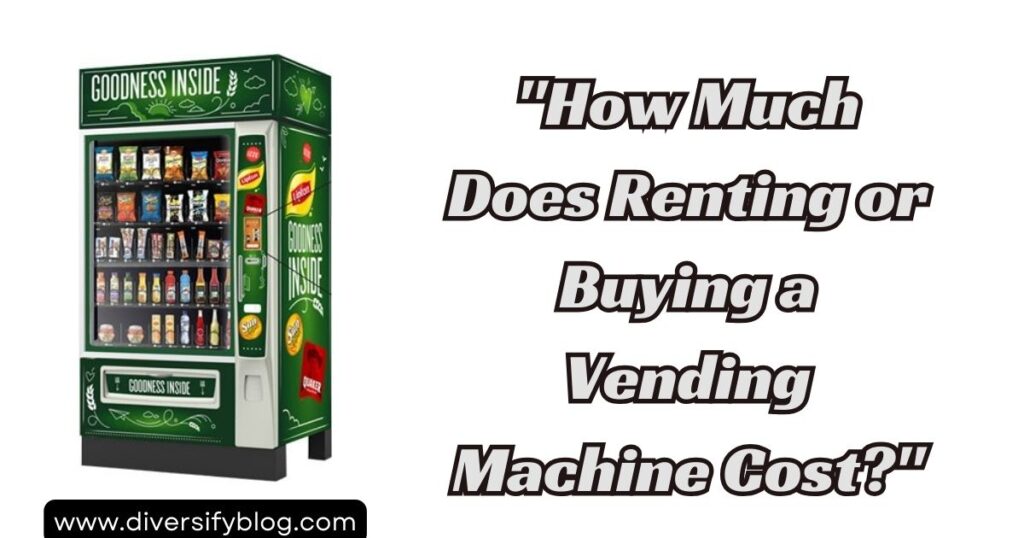
Costs Involved:
When renting a vending machine, you typically pay a monthly rental fee. This fee can vary depending on the type of machine, its features, and the supplier. Here are some average costs you might expect:
- Snack Vending Machines: $50 to $150 per month
- Drink Vending Machines: $50 to $100 per month
- Combination Vending Machines: $100 to $250 per month
- Specialty Vending Machines: Prices vary widely depending on the product and complexity, typically ranging from $100 to $300 per month
In addition to the monthly rental fee, some suppliers might charge for restocking services, maintenance, and repairs. Make sure to clarify these costs upfront to avoid any surprises.
Advantages of Renting
- Lower Initial Investment:
- Renting requires significantly less upfront capital compared to buying, making it a more accessible option for small businesses or startups.
- Maintenance and Repairs:
- Most rental agreements include maintenance and repair services, which means you won’t have to worry about additional costs if the machine breaks down or needs servicing.
- Flexibility:
- Renting allows you to upgrade or change your vending machine more easily if your needs change or if you find a better option in the future.
- Trial Period:
- Renting can serve as a trial period to see if a vending machine is a good fit for your business before committing to a purchase.
Disadvantages of Renting
- Higher Long-Term Costs:
- Over time, the cumulative cost of renting can exceed the cost of buying a vending machine outright.
- Limited Customization:
- Rental machines may come with limitations in terms of customization and product selection, depending on the supplier.
- Contractual Obligations:
- Rental agreements often come with contractual obligations that might include minimum rental periods or specific terms that can limit your flexibility.
Renting a vending machine can be a great option for businesses looking to test the waters without a significant financial commitment. However, it’s important to consider both the short-term and long-term implications to determine if renting is the best choice for your business.
4-Buying a Vending Machine:
Buying a vending machine is a significant investment, but it can offer long-term benefits and greater control over your vending operations. In this section, we’ll discuss the initial costs, ongoing maintenance and operation costs, and the advantages and disadvantages of buying a vending machine.
Initial Costs:
The initial cost of purchasing a vending machine can vary widely depending on the type, features, and brand of the machine. Here are some average price ranges:
- Snack Vending Machines: $1,500 to $5,000
- Drink Vending Machines: $2,000 to $6,000
- Combination Vending Machines: $3,000 to $7,000
- Specialty Vending Machines: Prices can range from $3,000 to $10,000 or more, depending on the product and complexity
These prices are for new machines. You can also consider buying used or refurbished machines, which can cost significantly less but may come with fewer features or a shorter lifespan.
Ongoing Maintenance and Operation Costs
In addition to the initial purchase price, owning a vending machine involves ongoing costs, including:
- Restocking: The cost of purchasing products to stock the machine
- Maintenance and Repairs: Regular maintenance to keep the machine in good working order and repairs if it breaks down
- Electricity: Vending machines consume electricity, and the cost will depend on the type of machine and usage
- Software Updates: Some modern vending machines have software that may require periodic updates, which can incur additional costs
Advantages of Buying:
1-Ownership and Control:
- Owning the machine gives you complete control over its operation, including product selection, pricing, and customization.
- Long-Term Savings:
- While the initial cost is higher, owning a vending machine can be more cost-effective in the long run compared to renting, as you avoid monthly rental fees.
- Customization:
- You can customise the machine to better suit your business needs and customer preferences, including branding and product selection.
- Revenue Potential:
- All profits from the machine go directly to you, without having to share with a rental company.
Disadvantages of Buying:
- High Initial Investment:
- The upfront cost of purchasing a vending machine can be a significant financial burden, especially for small businesses or startups.
- Responsibility for Maintenance:
- As the owner, you are responsible for all maintenance and repair costs, which can add up over time.
- Depreciation:
- Vending machines, like any equipment, depreciate over time and may require replacement or upgrading as technology advances.
- Commitment:
- Once you purchase a machine, you are committed to that investment and cannot easily switch to a different machine without incurring additional costs.
Buying a vending machine can be a smart investment for businesses looking for long-term control and cost savings. However, it requires careful consideration of the initial costs and ongoing responsibilities.
5-Factors Affecting Vending Machine Costs:
Several factors can influence the costs associated with vending machines beyond just the initial purchase or rental price. Understanding these factors will help you estimate the total cost of ownership and make informed decisions about which vending machine option is right for your business.
Machine Type and Features
Different types of vending machines come with varying costs based on their functionalities and features. For example:
- Basic vs. Advanced Features: Machines with advanced features such as touch screens, cashless payment systems, and inventory tracking capabilities will generally cost more upfront.
- Size and Capacity: Larger machines that can hold more products or dispense larger items may have higher initial costs.
Location and Placement
The location where you place your vending machine can significantly impact its profitability and costs:
- High-Traffic vs. Low-Traffic Areas: Machines placed in high-traffic areas like office buildings, schools, or transportation hubs may generate more sales but could also have higher rental costs or fees.
- Accessibility: Ease of access for restocking and maintenance can affect operational costs.
Supplier and Manufacturer
The choice of supplier and manufacturer can also affect the overall cost:
- Supplier Rates: Different suppliers may offer varying rental rates or purchase prices for similar machines.
- Manufacturer Reputation: Machines from well-known manufacturers may have higher initial costs but could come with better reliability and customer support.
Understanding these factors allows you to assess the total cost of ownership for a vending machine beyond just the upfront expenses. In the next section, we will compare the costs and considerations between renting and buying vending machines, helping you determine the best option for your business needs.
6-Cost Comparison: Renting vs. Buying:
Deciding whether to rent or buy a vending machine involves weighing the costs and benefits of each option. This section will provide a detailed comparison to help you make an informed decision based on your business needs and financial situation.
| Aspect | Renting | Buying |
| Upfront Costs | – Lower initial investment | – Higher upfront cost |
| – Monthly rental fee: $50 to $300 | – Purchase price: $1,500 to $10,000 or more | |
| – Possible security deposit | – Additional costs for shipping, installation, and initial stocking | |
| Ongoing Costs | – Monthly rental fees | – Restocking |
| – Some agreements include maintenance and repair services | – Maintenance and repairs | |
| – Possible restocking costs depending on agreement | – Utility costs (electricity) | |
| – Software updates and potential upgrades | ||
| Long-Term Costs | – Cumulative rental fees can exceed purchase price | – More cost-effective over time |
| – Maintenance included in some agreements, saving on unexpected repair costs | – Elimination of monthly rental fees | |
| – All profits from machine sales are retained | ||
| Flexibility and Commitment | – Greater flexibility | – Longer-term commitment |
| – Easier to upgrade or change machines | – Permanent investment | |
| – Generally shorter rental agreements | – Complete control over machine customization and product selection | |
| Financial Considerations | – Ideal for businesses with limited capital or those testing the market | – Suitable for businesses with sufficient capital and long-term vision |
| – Helps manage cash flow with predictable monthly expenses | – More financially beneficial in the long run due to the elimination of rental fees |
When deciding between renting and buying a vending machine, consider your business goals, financial situation, and the level of flexibility you need. Renting may be better for those seeking lower upfront costs and flexibility, while buying is advantageous for those looking to make a long-term investment and maximize profitability.
7-Uses and Benefits of Vending Machines for Businesses:
Vending machines offer numerous advantages for businesses across various industries. Understanding these benefits can help you see how a vending machine might fit into and enhance your operations. This section will explore the uses, benefits, and pros and cons of incorporating vending machines into your business.
Uses of Vending Machines
1-Employee Convenience:
- Providing snacks, drinks, and even meals for employees without them needing to leave the premises.
- Popular in office buildings, factories, and break rooms.
- Customer Convenience:
- Offering refreshments or essential items to customers in locations such as hotels, gyms, and waiting areas.
- Enhancing customer satisfaction by providing easy access to needed items.
- Revenue Generation:
- Creating an additional revenue stream by selling products directly to customers or employees.
- Suitable for locations with high foot traffic, like malls, airports, and schools.
- Brand Promotion:
- Using customised vending machines to promote your brand and products.
- Great for marketing campaigns or brand awareness initiatives.
- Cost Savings:
- Reducing the need for staffed kiosks or snack bars, thereby saving on labour costs.
- Efficient in places like hospitals, schools, and large office buildings.
Benefits of Vending Machines
- Convenience and Accessibility:
- Available 24/7, vending machines provide convenient access to products at any time, meeting the needs of both employees and customers.
- Particularly useful in locations with extended hours or where other retail options are limited.
- Low Operational Costs:
- Minimal supervision and maintenance required compared to staffed retail outlets.
- Cost-effective solution for providing food, drinks, and other items.
- Increased Productivity:
- Employees spend less time going off-site for snacks or drinks, leading to increased productivity.
- Easy access to refreshments can improve employee morale and satisfaction.
- Space Utilization:
- Vending machines require relatively small amounts of space, making them ideal for businesses with limited room.
- Can be placed in unused corners or other available areas to maximize space efficiency.
- Revenue Potential:
- Can be a profitable venture, especially in high-traffic areas where there is constant demand.
- Allows businesses to capitalize on impulse purchases.
Pros and Cons:
Pros:
- Convenience:
- Easy access to products for employees and customers.
- Operates 24/7 without the need for staff.
- Low Maintenance:
- Requires less maintenance and oversight compared to staffed retail options.
- Many vending machine suppliers offer maintenance services.
- Cost-Effective:
- Lower operational costs than running a staffed store or kiosk.
- Can provide a steady stream of passive income.
- Flexibility:
- Wide range of products can be offered, from snacks and drinks to hygiene products and electronics.
- Easy to adapt product offerings based on customer demand.
Cons:
- Initial Investment:
- Buying a vending machine requires a significant upfront investment.
- Even renting can involve ongoing monthly costs.
- Maintenance and Repairs:
- Machines can break down and require repairs, which can be costly and time-consuming.
- Regular maintenance is necessary to ensure smooth operation.
- Theft and Vandalism:
- Vending machines can be targets for theft and vandalism, especially in unsecured or high-traffic areas.
- Protective measures and insurance can help mitigate these risks.
- Product Freshness:
- Perishable items need to be monitored to ensure freshness, requiring regular restocking.
- Stale or expired products can lead to customer dissatisfaction.
- products and electronics.
- Easy to adapt product offerings based on customer demand.
Question & Answer ( People Also Asked )
How Much Is It to Hire a Vending Machine?
Hiring a vending machine typically involves a monthly rental fee, which can vary depending on the type and features of the machine. Here are some average costs:
- Snack Vending Machines: $50 to $150 per month
- Drink Vending Machines: $50 to $100 per month
- Combination Vending Machines: $100 to $250 per month
- Specialty Vending Machines: $100 to $300 per month, depending on the product and complexity
These fees may also include maintenance and restocking services, but it’s essential to clarify with the supplier to understand all associated costs.
How Much Does a Vending Machine Cost?
The cost of buying a vending machine can vary widely based on the type, features, and brand. Here are some average price ranges:
- Snack Vending Machines: $1,500 to $5,000
- Drink Vending Machines: $2,000 to $6,000
- Combination Vending Machines: $3,000 to $7,000
- Specialty Vending Machines: $3,000 to $10,000 or more, depending on the product and complexity
Additional costs may include shipping, installation, and initial stocking.
How Profitable Is a Vending Business?
The profitability of a vending business can vary based on factors such as location, product selection, and machine type. Here are some key points:
- Average Revenue: A well-placed vending machine can generate anywhere from $50 to $400 per month. High-traffic locations can yield higher returns.
- Profit Margins: Gross profit margins for vending machines typically range from 30% to 50%. However, net profit margins can be lower after accounting for costs such as restocking, maintenance, and rent.
- Initial Investment: Depending on sales volume and costs, a successful vending business can recoup the initial investment within 12 to 18 months.
How Much Is a Custom Vending Machine?
Custom vending machines can vary significantly in cost based on the level of customization required. Factors influencing the price include the machine’s size, technology, and specific custom features. Here are some estimated costs:
- Basic Customizations: $3,000 to $5,000, for branding and minor modifications.
- Advanced Customizations: $5,000 to $10,000, for machines with specialized features or designs.
- High-End Customizations: $10,000 and above, for fully tailored machines with advanced technology, unique designs, or specific product requirements.
Working closely with a vending machine manufacturer is important to get an accurate quote based on your specific needs.
Conclusion:
Vending machines can be a valuable business asset, offering convenience, accessibility, and an additional revenue stream. Whether you decide to rent or buy, understanding the costs, benefits, and potential drawbacks is crucial. Renting provides flexibility and lower upfront costs, making it ideal for businesses with limited capital. On the other hand, buying offers long-term savings and complete control, suitable for those looking to make a significant investment.
By carefully considering factors such as machine type, location, and maintenance, you can make an informed decision that aligns with your business goals. Vending machines can enhance employee productivity, improve customer satisfaction, and efficiently utilize space, making them a worthwhile investment for many business environments.







